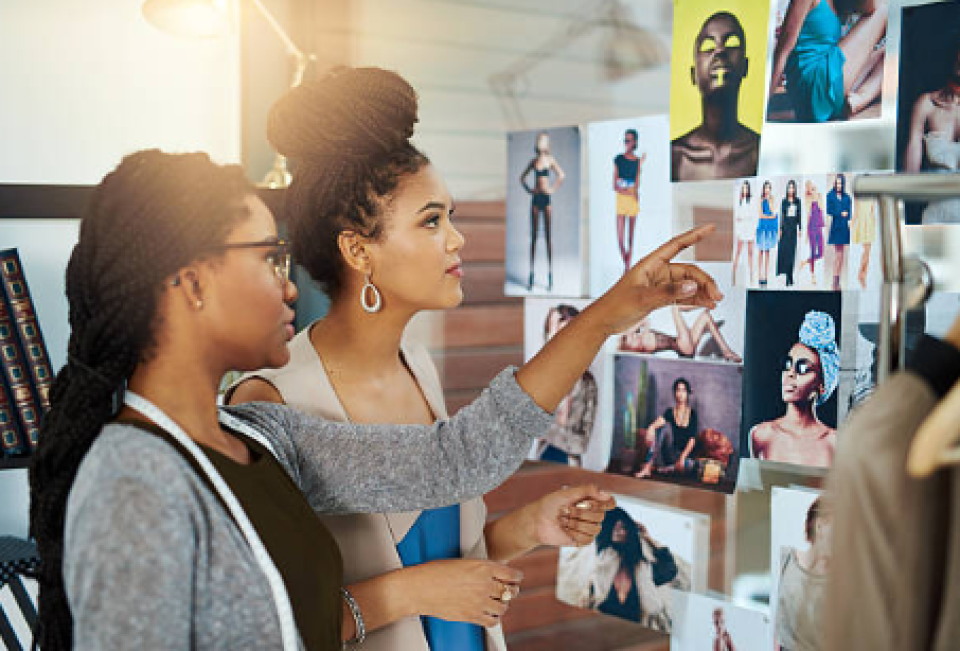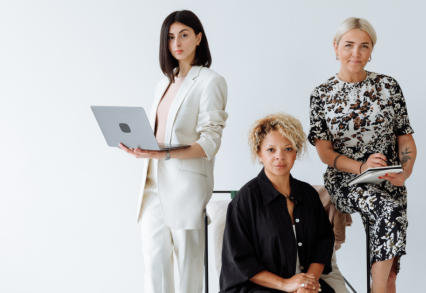How To Find The Right Fashion Job For You

Finding a job in the fashion industry can be hard, but once you’ve got the right job for you it can be very fulfilling. There are many different roles within the fashion industry, before going into the deep end and applying, why not research the roles and requirements to find which could be well suited for you? Within this blog, there will be helpful tips and information on how to get your foot in the door of the fashion industry, as well as what roles are available.
What?
Let’s start with the basics. Within the fashion industry there are a variety of jobs, ranging from research development, design, jewellery, homeware, and many more. Within these sectors, working professionals may choose a specialism, depending on if they have a focused interest.
Examples:
- A fashion designer might dedicate themselves to creating more luxury athletic-styled pieces.
- A developer might focus more on designing functional, ergonomic footwear for women.
- A researcher might concentrate on finding the most economic, environmentally friendly materials to use in their next collection.
These are just a few examples of specialisms, but it is important to be aware, so that when you enter the industry you can start searching for yours!
How to find a fashion industry job?
Applying for jobs within the fashion industry can be a gruelling process, it requires candidates to be dedicated to the process. This will pay off once you find the best job for you.
To help you through the process here's a little bit of guidance:
-
What role would you like to apply for?
To ensure you are applying for the right job, search around, and see what you are most qualified to do and where your main interests lie. This will benefit you in the long run, as you will get the right training for the job you wanted and are well suited for.
If you are unsure, research to see what interests you the most and work towards that!
-
Have the right qualifications
If you have an idea that you will want to be entering the fashion industry, ensure you do the right undergraduate degree. This will benefit you as you’ll be able to collect and develop your knowledge before entering the industry.
Examples:
- A fashion designer may choose to do a degree in fine arts or fashion design.
- A fashion marketer could consider going to business school to earn a marketing degree.
There are many different university degrees that can fit each role within the fashion industry. If you have questions about if a certain degree can support your career aspirations, go to a university open day and ask the course leaders.
-
Experiential learning opportunities are EVERYTHING
After completing university or school, you might want to start applying. However, this can become a long process where many people are not successful in the first months. Don’t waste this time working your Saturday job, apply for internships, fellowships, or volunteering roles that are going to help you gain the vital skills to put on your resume.
From this, you are likely to build your network, and you never know if you could be able to find a job through this process.
-
Networking and connections
Communicating and networking with the right people is an important part of building your profile in the fashion industry. These connections, as mentioned above might help you towards gaining more experience, and even interviews. You will build insight into the fashion industry and discover if this is definitely the place you want to work.
-
Use your time wisely
Sometimes it might be difficult to build your network when starting at the bottom of the food chain. If you are struggling to find internships and connections, do what you know and work on your own projects. This will show that you do have the skills and resilience for this industry.
-
Look everywhere
Looking everywhere for an open position will help you, don’t just stick to two websites. From this, you might discover more specialist jobs, as well as discovering the core assets they are looking for in an individual. Many roles are competitive so it is important to maintain your resume with the correct vocabulary.
What career paths are there in the fashion industry?
Designer
A Fashion Designer's key job is to draw and produce clothing, accessories, shoes, and other accessories and fashion items. A Designer could have a style for their collections including, fabrics, prints, and cuts. They are likely to collaborate with a number of other job roles within the fashion industry, such as product developers and researchers. This could benefit the Designers, ensuring they will be successful within the specific market.
Creative Director
A Creative Director is usually someone who is at the top of the chain of command for multiple departments, such as advertising and marketing. A key responsibility for this role would be leading campaigns, highlighting the campaign's aims, and suggesting what needs to be done to meet this objective. They may also be involved in reviewing their teams' productivity and performance.
Sustainability Officer
A Sustainability Officer is likely to have a key role in decreasing the fashion industry's impact on the environment and global impact. Due to the rise in the urgency of global warming, this job has become increasingly popular and busier. Within this role, they will research, develop, implement and promote strategies to help the environment, lower the company's carbon footprint, limit the company’s relationship with fast fashion, and typically recommend how to reduce the negative impacts of the company overall.
Product Developer
A Product Developer will always be communicating with other roles within the industry: Designers and Fabric Researchers to improve or create a new style or product. This role mainly looks at functionality, fit, and desirability for the target audience. From this, the Product Developer may then take into consideration the most cost-effective way of producing the product, while still taking into account the quality.
Merchandise Planner
Finally, a Merchandise Planner is usually involved with the pricing, delivery, merchandise requirements, and supplier contracts processes. The Merchandise Planner is always aware of the product's development over the years and is informed of the brand's history and current state of sales, stock levels, and trend predictions.
If you have any further questions about entering the fashion industry and starting your graduate job search, get in touch with us today. Or visit our recent blog on how to get started in the fashion industry…


